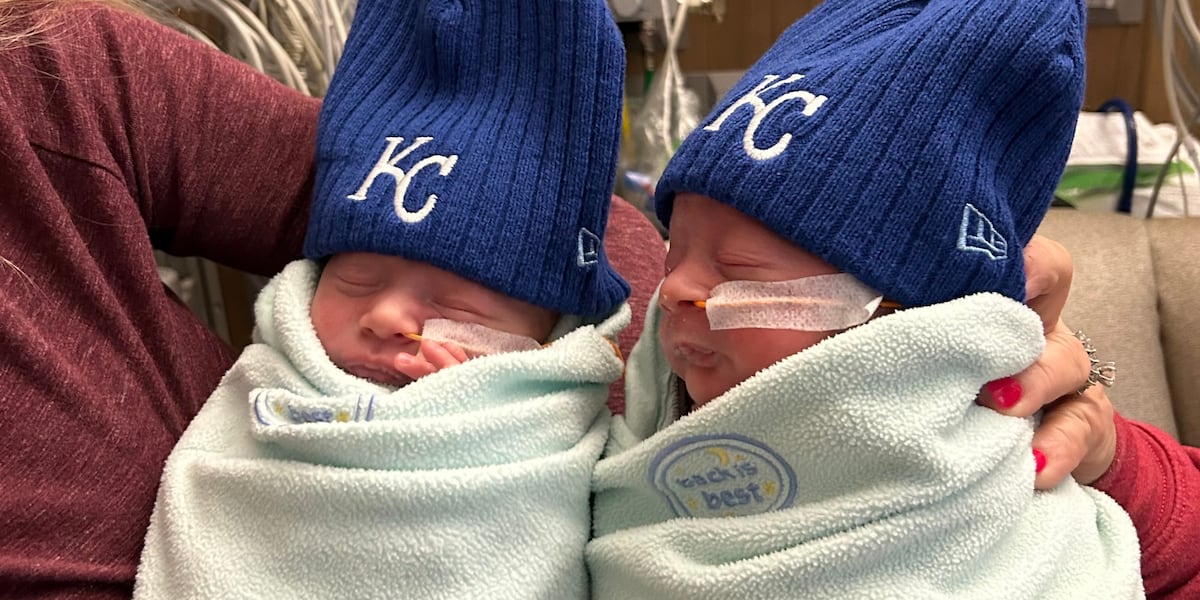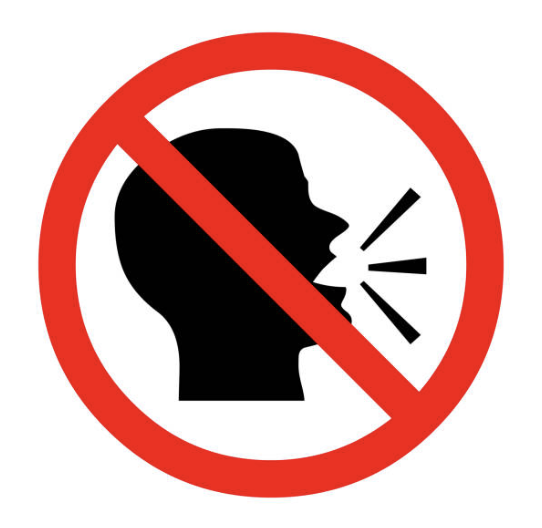america is so fucking based man
in any proper country that company at least gets forced to pay by the government then ordered to shut down forever due to wanton cruelty. all the employees get generous severance except whoever made that call. depending upon your view of carceral punishment there are a few ways to go with that guy.
Well thank god we don’t have any Death Panels from Obamacare though!
They weren’t really wrong about “Government Death Panels” thing they just neglected to mention that they already existed, and were staffed by MBA-executives there to make profit instead of boring government drones there to bide their time to collect a pension.
Canada just beat us to it, is all.
And they think they’re protected by that profit motive. Because they vastly overestimate how much their health and lives are actually worth. If you break it down by the numbers, they actually lose money the longer they keep you alive. At the moment you become a loss center instead of a profit center, they deny coverage.
Important facts for people that didn’t bother to read the article: it’s $2.1m each, so total is $4.2m. The coverage of the drug was cut on a schedule that was determined in January. The diagnosis of the disease was 5 days after the cut.
The cost isn’t an issue in my mind, but I think good to know how much the parents are in for. Insurance companies exist because of these costs, they should have to cover any treatment that has significantly higher success rates, especially when the lack of coverage will result in death, or other life-long consequences.
The timing and schedule are important as the headline makes it appear this decision was in response to these kids being born with the condition, when in fact, there was no diagnosis at the time of the cut and these kids were still months away from being born when the decision was made.
Final bit, though this wasn’t in the article, the drug is being covered for these kids. It took pressure from the state government apparently, or maybe just all the bad press. Shouldn’t change anyone’s opinion on POS insurers, but it’s at least good news that these kids aren’t condemned to a death sentence.
What legitimate reason would there be to price drug like that? Is that what the r&d cost to create it? Greed. Thats where 99.9% of cost issues end up for
Zolgemsma is a modified version of adeno associated virus and has to be grown under specific conditions. It costs $500k-$1m per production.. It’s also a one time injection that functionally cures the person of the disease. There are a couple other options but for comparison, the other therapeutic is Spinraza which is an intermittent intrathecal infusion which is $805,000 for the first year of therapy and $380,000 per year thereafter for the rest of your life.
To be clear, I think we should bear the actual costs of research, development, and manufacture as a society and not profiteer off the sick, but there are some contributory reasons for the price.
If it costs 1 million to produce then anything above a 1.1 million cost is still pure greed.
yeah this video was helpful to understand the complexity in manufacturing AAVs, namely the raw size of the proteins manufacturers need to create & interweave.

👆 that little dot in the lower left corner is Aspirin (timestamp 12:00)
Wait if that’s Aspirin then how do they get the big one inside of you? 😱
Those are molecule sizes, all these molecules are still very small
Oh good. I was getting worried there…
There’s always more to the story isn’t there? Else it wouldn’t be called clickbait
Modern medical research targeting worldwide drug distribution is ridiculously expensive due to legislation in different countries. Gone are the days when a pharmacist could give random shit to the unsuspecting clients to see if they would survive their walk home. And I don’t think you’d want these days to come back.
Modern drugs cost tens of millions of dollars to develop at a minimum, and can easily reach into the billions.
If only there was a class of people with so much money we could tax the whole amount from them and they wouldn’t even notice.
And usually subsidized with public money.
The cost isn’t an issue in my mind,
How is it not?
Insurance companies exist because of these costs, they should have to cover any treatment that has significantly higher success rates, especially when the lack of coverage will result in death, or other life-long consequences.
Yes, they should. But unchecked costs are a big reason why health insurance is so awful right now. We shouldn’t tolerate this price gouging by pharmaceutical companies.
And don’t tell me it’s all about R&D.

thats less than nine months ago and insurance would have access to maternity records
Not sure how that’s relevant, can you explain a bit more about what you’re thinking? They couldn’t have been diagnosed with a need for the medication at early-stage pregnancy.
Not diagnosed but if there were early indicators of a problem that could fit into a statistical/AI model that they had a large probability of a range of problems.
couldn’t have been
how do you know?
Because there are very few diseases and conditions that can be detected before birth, and unless they have physical development characteristics (this one doesn’t until after birth) the only way to diagnose them is an invasive procedure that it’s dangerous to the fetus so they are only done when there is a very high suspicion that there is something to detect.
so more like “unlikely” not “impossible” ?
Nother example of how much care for babies exists after theyre born
This is how we PROTECT BABIES!
this is some martin shkrelli shit. Somebody needs to go to jail
How can one dose of medicine, literally any medicine, be 2 million dollars? JFC.
Because capitalism and private healthcare
These things cost billions to create. Those billions are often (or should be anyway) spread out over the millions of people who can use the drug.
When a drug is a one time cure, for something that is rare, it becomes incredibly difficult to make any money back on that unless the cost is incedibly high, or it’s government subsidized.
That’s why a lot of things we probably could cure aren’t cured yet. It just doesn’t make sense financially to do it. And if they do do it, people like you get angry at them.
This is much less of a problem in a public single payer system, but even then some of those systems don’t cover these kinds of treatments.
These things cost billions to create. Those billions are often (or should be anyway) spread out over the millions of people who can use the drug.
And the US government funding was equivalent to private industry for 99% of drugs developed this century.
Cost to develop, govt red tape, number of possible customers, and of course, profit. We’d have to analyze each of these, factors weigh the results, etc.
Or we can skip that and just blame the system.
We need medicare for all so that this doesn’t happen.
But then people who don’t look like me will get healthcare 😱
It might still be broken, needs to be paired with regulation on drug and doctor fees. I’m all for it, but it needs more so that we aren’t just writing a blank check to the medical industry.
We have children who need help! Someone call in the “pro-life” conservatives! Don’t worry, gang, we know those God-loving righteous people will come through to solve this. Surely, they will be stumbling over each other help. Nobody talks a bigger game of saving the kids.
They’re pro-birth, not pro-life.
It’s your fault you exist, so thoughts and prayers is all they’ll give you.
Someone check the Thoughts and prayers counter, it must be raking in lots of pro-lifer support by now.
I’m not sure what’s worse, the insurance was cut or that a life saving drug is 2.1 million?!
That the insurance was cut. Ethics of private drug R&D aside researching costs resources, resources need to be reimbursed, and if you have a drug that heals a rare illness with one dose you sell very few doses. Another drug for another illness might cost as much to research, but you need a dose every month and there’s millions upon millions of patients. Let’s also assume that both drugs cost the same to produce, per dose. Which means that to cover total costs a single dose for the first drug might have to cost two millions, and the other 20ct.
The alternative to this is saying “You have a rare illness, tough luck, we won’t research drugs for it it benefits too few people”.
Places very tightly control the price drugs can be sold for all over the world. They audit the cost of operation, RD, etc and then adjust the price based on a regulated percentage of profit. This means that drug prices, in the rest of the developed world, are far lower than the US. Even in places with non-socialized healthcare like Switzerland, and Japan. Drug companies are still there, still making money, and not increasing drug prices by 1000% because they want to. Then there is the humanitarian practice of subsidizing the cost to patient for exceptionally expensive treatments. For example, the alternative treatment to this drug is more than twice the cost of the drug, it is also less effective, leaving a lot of long term costs. So EU countries, for example, subsidize this drug because it actually ends up saving the tax payers money to do so. This makes it available to the ~1/10000 citizens with the condition, spinal muscular atrophy.
In the US this will likely bankrupt these people, leaving the costs for them and the taxpayer. This ends in a total loss of economic productivity higher than the government just footing the cost for the drug in the first place. The US system is lose/lose. Both the patients and the government pays more than anywhere else. The only people winning here are corporate executives and their shareholders.
The only people winning here are corporate executives and their shareholders.
That’s why I prefaced the whole thing with (more or less)“capitalism aside”: Everything you said also applies to drugs which are still overpriced, but definitely cheaper in the US. The reason this kind of drug is especially expensive, also in places not as fucked as the US, is that it’s a) a one-dose cure and b) for a rare disease. If it were a monthly injection instead of a one-time one it’d still be as expensive but not per dose but per patient-lifetime, and if twice as many had spinal muscular atrophy it’d be roughly half as expensive.
The bargaining EU insurers do with drug manufacturers takes that into account because, as said, otherwise there’d simply be no drugs for those rare diseases.
Overall I think it’d be better for insurers to fund drug research more directly but also then researching cures for rare illnesses would cost a lot of money per manufactured dose.
I think you missed the point of the second part of my statement. That the government pays for expensive treatments because, in the long run, it actually costs less for them to do so, than to hold the patient liable. This means the cost to patient will never be 2.1 million dollars, which accomplishes the goal of drugs not costing that much where it matters.
The only prescription drugs that are cheaper in the US are off brand generics. This is the case because other options are 3-4 times more expensive, on average, than in the EU, so the increased demand for generics creates a manufacturing scale that drops the prices per unit. This price decrease is 20-30% on average. People in the EU are fine with brand names because they aren’t drastically more expensive than generics, even at US generic prices. The end of the day though, they pay less for drugs, as whole, than we do, and no patient is paying 2.1 million dollars for a drug.
Except Zolgensma’s R&D was funded through the NiH. The only reason why it costs millions per dose is because Novartis bought AveXis for 8.7 billion solely to acquire the rights to Zolgensma.
[citation needed]?
Wikipedia mentions that it’s based on research from the Institut de Myologie, France, nothing about the NiH.
Also I already made the whole capitalism angle an aside. Plenty of people are talking about it, meaning I don’t need to talk about it. One-dose cures for rare diseases are more expensive per dose than multi-dose treatments for common diseases under any system, that’s what I wanted to say.
I get that y’all yanks hate your medical-industrial complex, and you’re right to, but that doesn’t mean that everything is expensive just because some suit rolled some dice.
“benefited from comparative studies on patients with spinal muscular atrophy”, that’s not “funded the R&D” but “NiH did studies and AveXis read them”. If it was more than that they wouldn’t use that kind of weasel language that only implies, but doesn’t say, things. The rest is approval fast-track which saved AveXis money, but didn’t cost the tax payer a dime.
I’m not saying that they’re not overcharging – of course they are, they definitely are, especially after getting bought up by Novartis and given the US’s inability to actually bargain with drug manufacturers. But this narrative of “taxpayers fronted all the costs” (“R&D was funded through the NiH”, implying all of it) is BS.
And even then, and I fucking knew what I was doing when I said “I don’t wanna talk about the capitalism aspect”, the drug would’ve still been more expensive to develop, per dose, if it was fully state-funded.
Also I wouldn’t be surprised if the French research that led to the whole gene therapy stuff in general was 100x more expensive than those NiH comparative studies. It’s foundational research companies never do that kind of stuff. Probably at least 10-20 PhDs in that overall, funded by the French taxpayer.
Definitely that insurance was cut. Drug R&D is expensive, and they need to pay people who work and have projects that don’t pan out. But they should be able to spread that cost over everyone in the pool, reducing the cost to everyone to mere dollars or cents. But that requires insurance to actually fucking do their job.
Drug R&D is expensive, but it’s only 21% of the top 15 Pharmaceutical companies’ revenue. And that number is actually misleadingly high because it actually includes some actions that are just meant to help advertise the drugs.
I really don’t want to defend pharma but that study is a bit dubious.
There’s a bunch of issues but the most obvious is simply that a percentage of turnover is meaningless.
What percentage would be right?
What percentage would be right?
Given that they’re using the cost of R&D to justify their prices? A lot more than 21%.
The rest of the world gets much lower prices. That’s not out of the goodness of their hearts or the generosity of their wallets, yaknow?
You’ve missed my point.
The percentage of total expenditure spent on R&D is not in any way indicative of the cost of R&D compared to the sale price of a given medication.
Quite simply, maybe the majority of a company’s turnover is manufacturing licensed or generic meds. No R&D required.
Does the remaining 21% equate to $2m or $2b, and how many new medications did they create with that expenditure?
That’s a mind-numbingly obvious point which completely ignores the context, which is Pharma justifying their high prices based on the amount they spend on R&D.
The rest of the world gets drugs 2-3x cheaper than the US. Do you imagine they’re selling at a loss to everywhere else?
a mind-numbingly obvious point
Yet completely lost on you ?
If a company spends $2b on research each year and after 5 years brings a new medication to market which is only useful for 1 person in every billion, how much should that company sell that medication for and how is it relevant that the company “only” spent 21% of it’s revenue on research? That company could still say that the medication is costly due to research costs and the claim would be true.
I’m not saying pharma companies aren’t shady as fuck, I’m just saying that complaining about the percentage of their revenue spent on research is absurd.
The rest of the world gets cheaper medications because the medical system in the US is just a mess.
That said, some medications are still preclusively expensive outside the US “due to research”.
Drug R&D is expensive
You mean the R&D that the government paid for to take place at a public university, as is the norm? That’s the expense you’re claiming justifies this profiteering?
Until they start actually paying those subsidies back, that excuse doesn’t explain any of their profiteering.
I’m a researcher in the biological sciences at an institute which receives lots of government funding, and was at a university before my current position. We are not being paid to develop drugs. We are being paid to develop new knowledge that hopefully can be useful (in the broad sense of the term). Practically no one I’ve ever met during my time in academia is developing drugs, and the small few that were doing so were only researching a single, small part of a very long, complex process.
The R&D you are paying for is for us to typically find out that “Protein X interacts with Protein Y and causes Effect Z. When we delete Protein X then Effect Z goes away”. We might also find out that “Molecule Q can block the activity of Protein X, but has a host of issues that make it ineffective when given to Petri dish cells and mice.” This can give you a lead towards making a drug, but what we do is basically discover a possible starting point, nothing more. If someone wants to make a drug from this, they typically will start a company and get venture capital and angel investor money, as university labs are usually poorly equipped financially and talent wise to actually develop a drug (to speak nothing of pushing it through clinical trials). Transforming Molecule Q into a bona fide drug candidate is going to require a massive amount of work that most lay individuals are completely unaware of.
I’m really curious where this concept that the government is spending tons of money on drug R&D at publicly funded universities is coming from. It sounds great as a talking point, but from my perspective within the system it’s not quite how things work.
We are not being paid to develop drugs. We are being paid to develop new knowledge that hopefully can be useful
You know that the R in R&D stands for “research”, right? 🤦
The R&D you are paying for is for us to typically find out that “Protein X interacts with Protein Y and causes Effect Z. When we delete Protein X then Effect Z goes away”. We might also find out that “Molecule Q can block the activity of Protein X, but has a host of issues that make it ineffective when given to Petri dish cells and mice.”
Sounds a hell of a lot like that’s the kind of research that’s indispensable when formulating drugs.
This can give you a lead towards making a drug
Ya think? 🤦
but what we do is basically discover a possible starting point, nothing more
Sounds like you’re doing all of the research and other legwork tbh. That’s hardly just “a starting point”.
I’m really curious where this concept that the government is spending tons of money on drug R&D at publicly funded universities is coming from
You mean other than how you just confirmed it while trying to disprove it?
from my perspective within the system it’s not quite how things work.
That being the perspective of living proof that you can be intelligent and simultaneously oblivious of the obvious.
Either way, pharmaceutical companies aren’t spending all their income on R&D. By far the biggest expense is advertising and after that, it’s stockholder dividends of the absolutely obscene profits they’re making on ripping off sick people.
Lol the guy said it himself: “I am a researcher” doesn’t understand there is an entire other part called development that also gets government funding. He works in the field and doesn’t realize that the pharmaceuticals companies “developing” drugs also get grants and tax breaks.
Something about this insurer stinks. How long does it take to drop a drug from their coverage, usually? And did they know the twins would need this drug before the mother knew? If that’s the case, then her employer, who was also the insurance provider, had access to her healthcare records. They had access to all her information and likely paid her OB/GYN on the sly to tell them what was going on with the twins while in the womb.
NP just quit avocado toast
May the insurance agency burn down with all employees inside 😊
It’s not the employees fault. I know a person who’s an actuary at an insurance company, they fight for each case and every day they’re depressed at how little they can do but they fight for people when and where they can. Honestly it’s a testament to the fact they’re still there and how much they have to compartmentalize every day, well at least until beer thirty rolls around and we used to get into a bitchfest about how shitty the health insurance system is.
Executives maybe but not the employees.
What’s most pathetic is the scale. $2.1 million may seem like a lot for a single use drug, but that $2.1 mil loss dissipated out to shareholders probably isn’t so much. I don’t have the exact numbers but I’ll bet the loss of revenue isn’t even a blip to the average shareholder income.
They’re killing newborns based for what amounts to nothing to them. It’s sick.
It’s not a loss if nobody was going to pay that much anyway. It’s like IP owner’s wildly inflated claims of losses due to piracy.
What revenue are talking about?
Revenue is probably the wrong word. “Stock Price” or “value” or whatever. You know what I mean though.
I get It though. I fucking disagree with it, but I get it. They’re a company playing by US rules. If they make an exception for these babiesz they’ll have to make exceptions for others too. It’s evil, but so is the entire “game” that’s being played here. It makes people evil, so change the game
Why do they have to be exceptions? Isn’t covering unexpected high costs the entire fucking point of insurance in the first place?
No. The point of insurance, as it is right now, is akin to a game of slots in a casino. You keep on swiping your card and expecting a payout on the next pull. You see someone else win big and you hope for that.
But the house always wins. If the house wasn’t winning, they wouldn’t be in the casino business, they’d be bankrupt.
Except in this case your forced to keep playing, because the parking garage is so damn expensive nobody could leave until they win the jackpot. But they don’t tell you about how expensive the garage is until 3 weeks after you park.
We should simply pay for research with tax money and make drug patents illegal. It still would not fix this issue. We also need some form of public insurance.
In this case, the only option is bankruptcy.
Well we already pay for research with tax money. So we got half of that going on.
One of the earliest uses of based is by 4chan users to describe things that were Nazi adjacent or fascist that celebrities and politicians would say and do. It was “based” because the idea is that they were doing the “right” thing even though it was unpopular often doing things like being ok with needless deaths because it also meant it pushed their fascist agenda. I think op is using it ironically in this case like those 4chan cretins use it.
Since then it’s been co-opted as the general Internet meme and that’s how most people know it now.
I only know it as “I approve of this”, not “lol, I don’t approve of this, but I say I am to be hilarious”. This is the danger of adopting this Nazi Internetspeak to be funny.
Yes but then when someone says <clearly horrible awful thing> is based, it’s blatantly sarcasm
Except when it was on 4chan and it was actual Nazis just being Nazis. So no, not blatantly sarcasm.
Lol
So many people here talking about 4chan who so obviously have no fucking clue what it’s actually like and just regurgitating this idea that every person, every single thing, every comment is always bad and nazi and the worst possible version of it that it could be. It’s soooo based
It’s a sarcasm
There are already comments claiming this, thanks.
Removed by mod
There’s no reason to be rude. See Rule 1.








